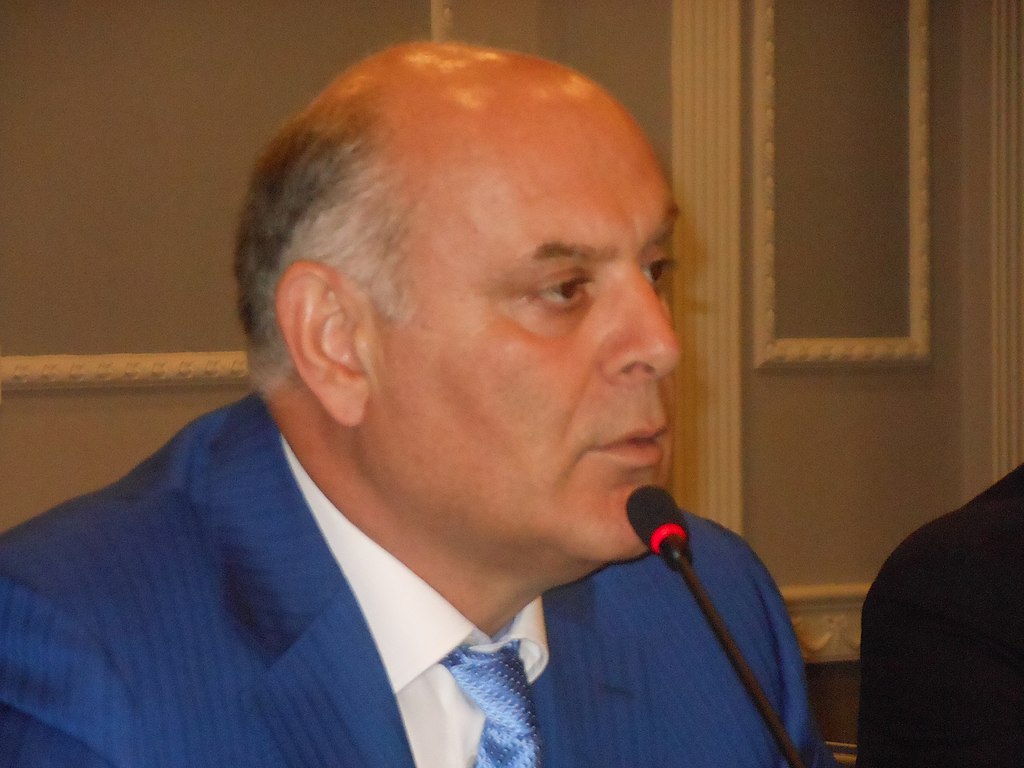President resigns as protests rock Abkhazia
In the separatist region of Georgia that has been under Moscow's control for 15 years, thousands of people rose up against the government's agreements with Russian oligarchs. Bžanija announced the step back ‘to preserve stability and constitutional order’. These are not unprecedented events for Sukhumi, which is nevertheless destined to remain firmly in the hands of the Kremlin.
Tbilisi (AsiaNews) - In a phase of great popular upheaval in Georgia, divided between the orientation of the majority towards Moscow and that of the opposition towards Europe, the crisis in Abkhazia, a separatist region that together with South Ossetia has been under Russian control for 15 years, has resoundingly come to the fore.
The demonstrations of the past few days have led the demonstrators to break through the gates of the parliament building and also storm the presidential administration, demanding the resignation of the self-proclaimed ‘president of the republic’, Aslan Bžanija, who after an initial attempt at conciliation disappeared, only to reappear in his home country and finally announce his resignation, which was accepted by the Sukhumi parliament. In the video released by the now ex-president, he assures that he is ‘in my village of Tamyš with my relatives and friends’, denying rumours that he has fled to Russia, and stating that he resigned ‘to preserve the stability and constitutional order of the country’.
The parliament appointed vice-president Badra Gunba in place of Bžanija, and put Valerij Bganba, former speaker of the lower house of parliament, as prime minister in place of Aleksandr Ankbav, who also resigned from his post. The current speaker of parliament, Laša Ašuba, said that ‘for the umpteenth time we had to get our state back on the track of legality, which is fundamental for the life of our people’. The deputies therefore postponed the session in which the investment agreement with Moscow was to be ratified, and a promise to cancel it came from the presidential administration. The president's press office released a text of an agreement signed between the authorities and the oppositions during the uprising, in which the latter pledged to leave the occupied palace and free the Sukhumi centre, in exchange for Bžanija's resignation and the rejection of the contract with the Russians.
These are not unprecedented events in the tumultuous separatist region of Georgia, where there have been several presidents put to flight by the population during street protests. Bžanija himself had come to power in this way in 2019, smashing the windows and doors of the government building and forcing his predecessor to resign. In order to avoid the boomerang effect, he had refurbished the building with armour systems, armoured cars and video surveillance, protected by a large number of bodyguards, but these measures were to no avail in the face of the crowds that invaded the power premises.
The agreement signed with Russian businessmen on 15 November reignited the clashes, revealing that even in the most pro-Russian areas of Georgian territory, Moscow's dominance was not accepted, and that with its oligarchs it would take over all the Abkhaz lands that could bring profits. Bžanija had done everything possible, hiding the documents of the agreements, arresting activists against them, ignoring the opposing voices of public opinion, the councils of elders and others, but rumours had then spread about the corruption of several deputies to whom the Russians had allegedly promised a fee of 12 million roubles (almost 15 thousand euro) for voting in favour, provoking further reactions among the 250 thousand inhabitants of Abkhazia. At the first session on this topic, only 21 out of the 35 deputies that make up the parliamentary chamber showed up, without being able to reach the 18 votes required for approval.
The government then deployed trucks and armoured vehicles with water cannons and tear gas in front of the parliament, gathering all the possible police forces, but nothing could stop the onslaught of the crowd. Now the new performance of Abkhazia's ‘struggle for independence’ is awaited, knowing full well that whoever comes to power can only be a puppet in the hands of the Kremlin. Despite his resignation, Putin has ignored the protests by inviting Bžanija to Moscow for the celebrations of the 80th anniversary of the victory against the Nazis on 9 May 2025, while the former president of Georgia, Mikhail Saakašvili, praised the Abkhazian protesters, who ‘succeeded in doing what all Georgians should do, blocking the colonisation of the Russians’.
07/02/2019 17:28







.png)










